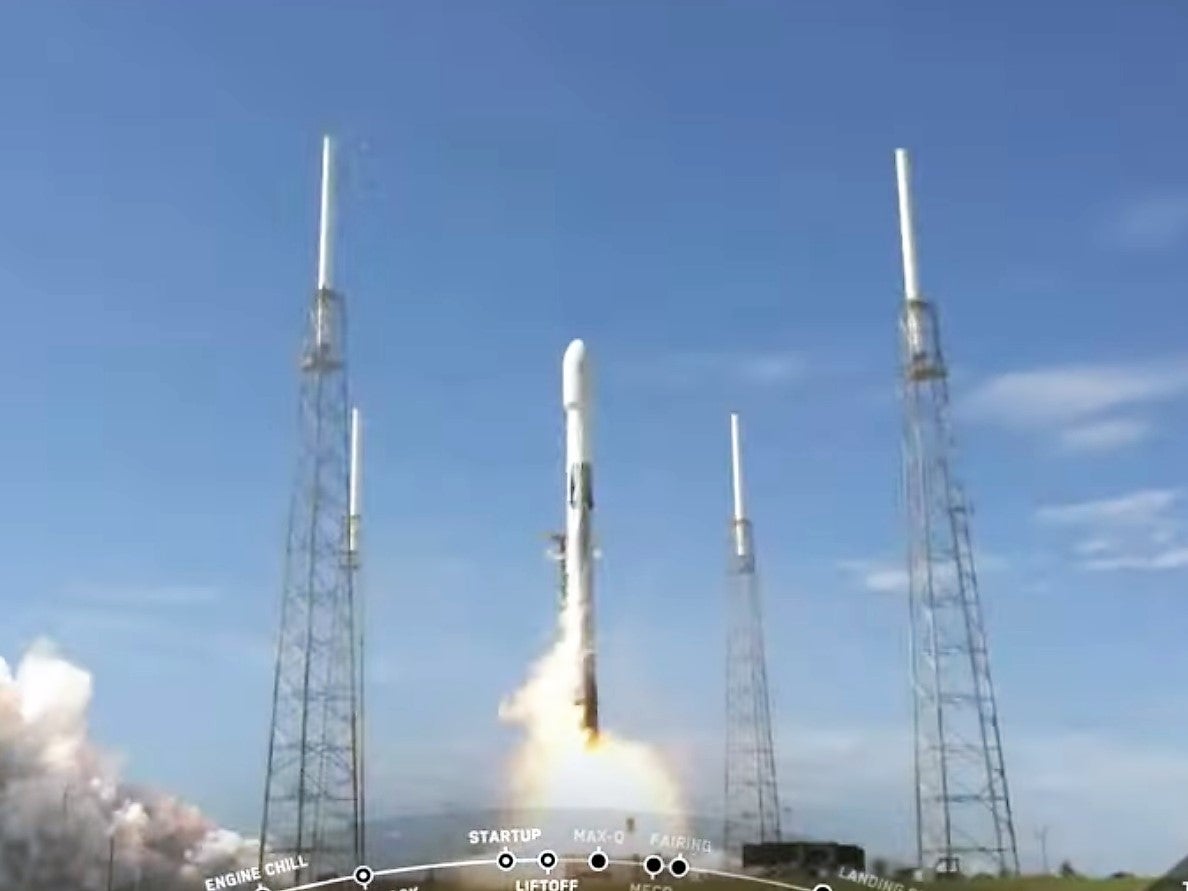Elon Musk's SpaceX aborts launch with minutes to spare to 're-examine whole rocket'
Latest lift-off planned just four days after the last batch of internet satellites were launched

Your support helps us to tell the story
From reproductive rights to climate change to Big Tech, The Independent is on the ground when the story is developing. Whether it's investigating the financials of Elon Musk's pro-Trump PAC or producing our latest documentary, 'The A Word', which shines a light on the American women fighting for reproductive rights, we know how important it is to parse out the facts from the messaging.
At such a critical moment in US history, we need reporters on the ground. Your donation allows us to keep sending journalists to speak to both sides of the story.
The Independent is trusted by Americans across the entire political spectrum. And unlike many other quality news outlets, we choose not to lock Americans out of our reporting and analysis with paywalls. We believe quality journalism should be available to everyone, paid for by those who can afford it.
Your support makes all the difference.SpaceX has aborted the launch of the latest batch of its Starlink internet satellites.
The failed launch from Cape Canaveral in Florida comes just four days after the 14th batch of Starlink satellites were successfully deployed to low-Earth orbit.
Such a rapid launch schedule is made possible by SpaceX’s pioneering Falco9 9 rockets, which are capable of landing after lift-off so they can be reused at a later date.
“Standing down from today's launch of Starlink to allow additional time for mission assurance work,” SpaceX tweeted.
“Will announce next launch opportunity once confirmed on the Range.”
SpaceX CEO Elon Musk added: “Just a small-seeming issue with loss of upper stage camera. Probably nothing serious, but standing down to re-examine whole vehicle just in case.”
Thursday’s launch of 60 satellites would have grown the Starlink constellation to over 850.
The network is already rolling out to a limited number of users in Canada and the United States, with plans to eventually deliver high-speed broadband to 99 per cent of the populated world.
Early testers include emergency service workers in Washington State, who hooked up a satellite to connect to the network in order to provide a WiFi hub to residents in the town of Malden, which had been mostly destroyed by wildfires in September.

Join our commenting forum
Join thought-provoking conversations, follow other Independent readers and see their replies
Comments